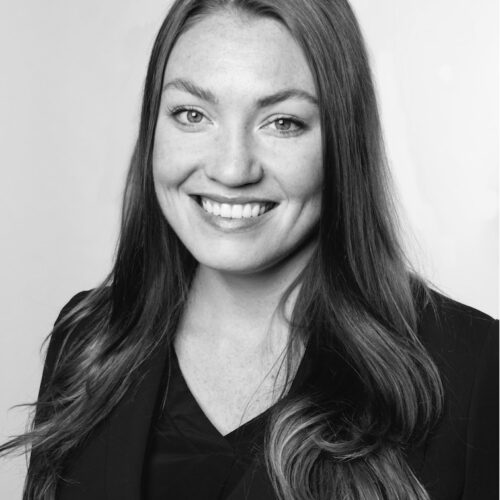Lindsay Brandon
United States
Membership profilePosition: Lawyer
Type of Occupation: Private Practice Lawyer
Area of expertise: Anti-Doping, Disciplinary Matters, Governance / Regulatory work
Member of the month: July, 2021

We are delighted to announce our Member of the Month, Lindsay Brandon.
Lindsay Brandon, Associate Counsel, Law Offices of Howard L. Jacobs, California, USA.
How did you get involved in sports law?
After law school, I pivoted to freelance and remote work after a family emergency. I ended up writing for an online magazine where I explored the intersection of social justice, sports, and the law. Though I hadn’t considered sports law as a career while in law school, I decided I wanted to go back and get my LL.M. in the discipline. There, I met Howard Jacobs, who ended up hiring me as an intern, and eventually as his first associate.
What was your most memorable achievement in the sector?
Probably successfully resolving my first case on my own, which resulted in the anti-doping organization dropping a Whereabouts violation against my client who had become homeless. People often forget, particularly in the U.S., that not all athletes are wealthy and successful in Olympic Sports, so this was a huge win for me particularly given my prior background in public defense and social justice.
Any advice for someone trying to break in to the sector?
Be flexible with your career goals. Before ending up in my current job, I was unaware such a practice even existed. Also, be prepared to work harder than you imagined: sports law often not as glamorous as you might think.
Greatest challenge you’ve had to overcome?
I lost my parents during and right after law school, so my career path was upended by that. I basically had to reset and restart the practice of law all over again, while my peers already had a few years of experience under their belts. I think that’s why my LL.M. program was so critical to my success in this field; I was surrounded by other people whose experience ranged from no law school at all to 15 years of practice in another field. It made me feel more comfortable to “start over”, so to speak.
Why did you decide to focus on anti-doping and safeguarding?
I think this area of sport law found me, rather than the other way around. Again, I was not really aware that such a practice existed, nor was I aware of the intricacies of administrative disciplinary laws that athletes faced. Originally, I entered my LL.M. program with the goal of working in-house or at a players’ union. But, given that there was no union for Olympic athletes in the U.S., there was plenty of demand for private athlete representation. While I began practicing almost exclusively in anti-doping, the addition of “SafeSport” in the U.S. has shifted my practice to also include a significant safeguarding caseload.
How has WISLaw helped you in your career?
Personally, WISLaw has always been a space for networking and friendships; I have been able to connect with attorneys halfway across the world for random legal questions. As an organization, it is a vital support system for women who may have to work twice as hard (or harder) to get where they are today in this industry; there are – simply stated – too many white men governing sport around the world.
What do you do in your spare time?
In my spare time I like to travel (hopefully more of that will come soon once the pandemic is under control), and get outside as much as possible. I enjoy hiking, cycling, swimming, diving, and running with my puppy that I just got a few months ago. I would say that the NFL and tennis are my favorite sports to watch.
If you weren’t a sports lawyer, what profession do you think you would have?
Probably making wine or operating a bar. I worked in the service industry for several years, and part of me misses the social interactions and working with my hands.

